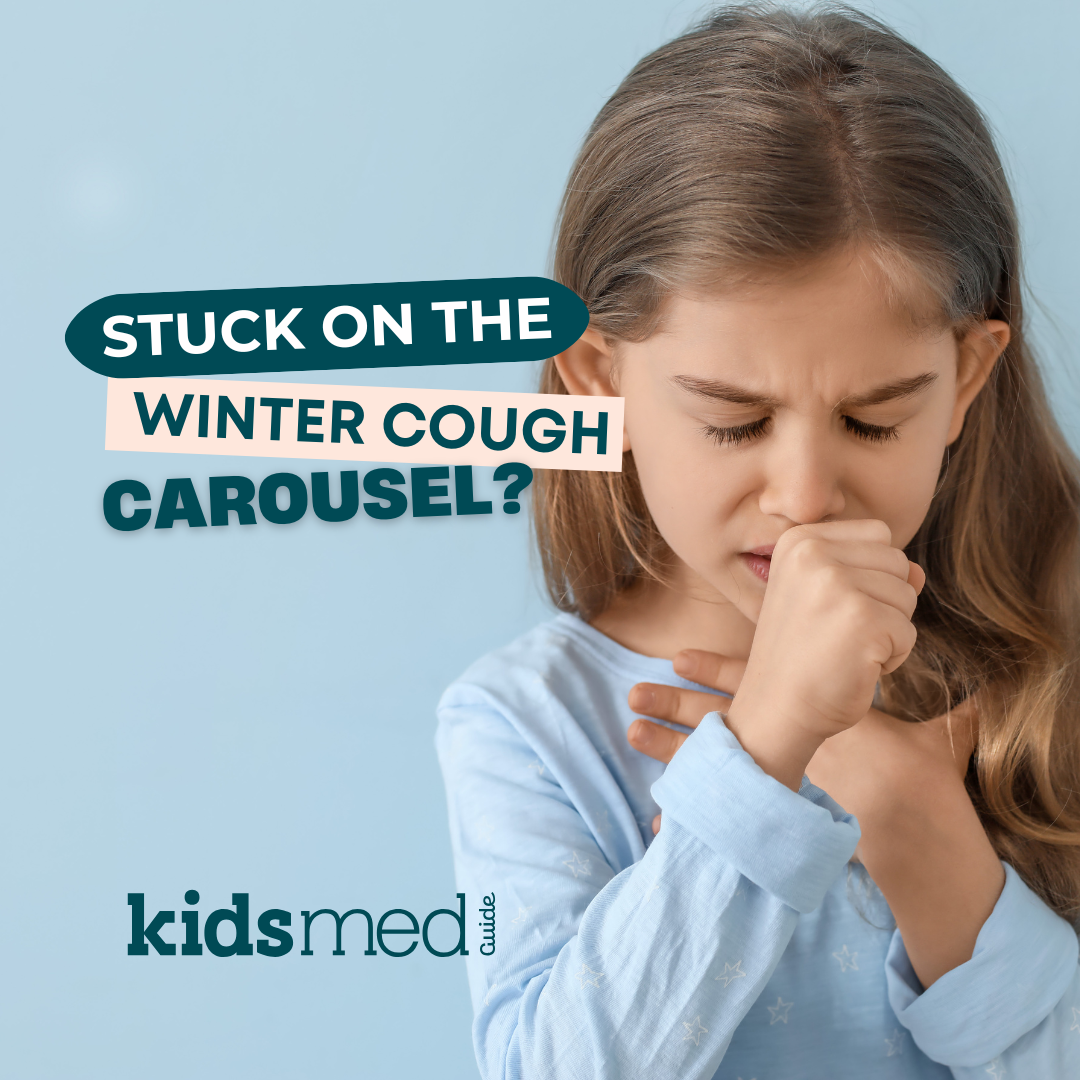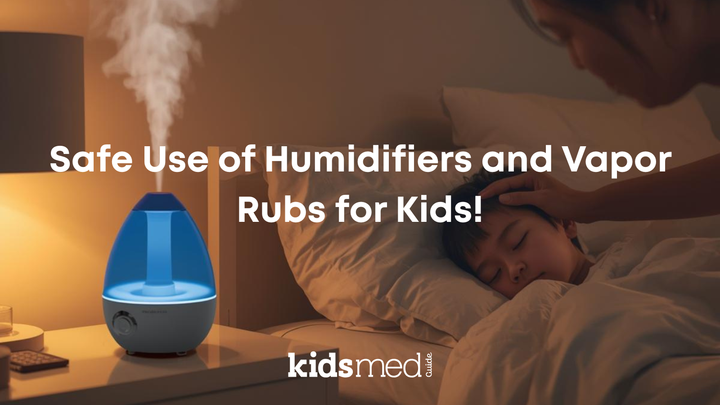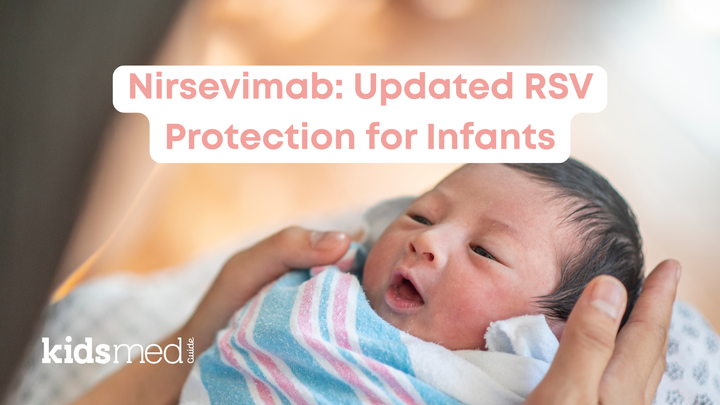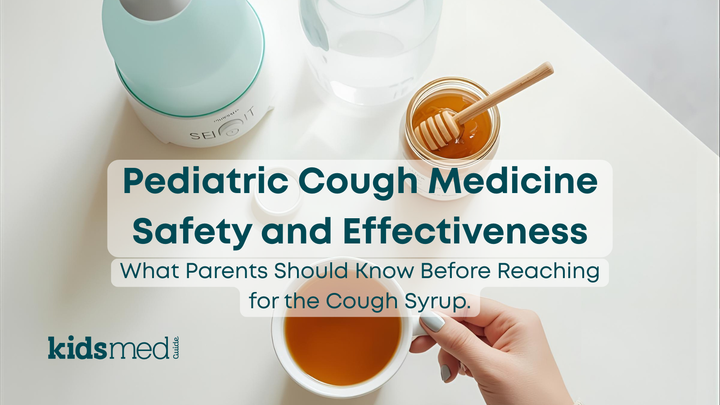Stuck on the Winter Cough Carousel?

A Pharmacist's Guide to Treating Winter Coughs in Kids
Does your home sound like a tuberculosis ward in the early 1900s? Yup, mine too.
RSV, COVID-19, flu, and all the winter yuckies are circulating full force. After a respiratory infection, a cough can linger for weeks. And when the cough finally clears up, a new respiratory infection takes hold! It's like when you're stuck on a kid's carousel at the theme park and start to get sick but can't get off the ride... winter illness style.
If you're the parent of a young kid, expect this pattern to continue through spring!
Here are our Quick Tips for Treating Cough in Kids:
- Skip the cough medicine.
Products containing cough suppressants are not recommended for children under age 6. I rarely recommend them for older kids or adults, either. They don't work very well and have many side effects. Only use these if your physician advises you to do so. - For kids older than age 1, give honey.
Studies suggest that honey works just as well as cough suppressants, with no side effects and the benefit of a pleasant taste. To coat the throat, give your child 1/2 to 1 teaspoon of straight honey for coughs. You can also mix some into warm water or tea.
*Note: it's vital to follow the age recommendations here. Kids under age one CANNOT have honey due to the risk of botulism. - Drink plenty of fluids.
Staying well hydrated helps to thin mucus, soothe the throat, and prevent illness-associated dehydration. Offer whatever your child will drink, but note that warm tea or hot water with lemon might be soothing. Also, use an oral rehydration solution like Pedialyte if you are concerned about dehydration - Use nasal saline solutions.
Saline drops applied to the nose work well at breaking up mucous and relieving congestion, which helps clear up congestion-related coughs. There are some fun and fancy over-the-counter mask options for kids who won't tolerate a saline spray. Follow up with a bulb syringe or Nose Frida for babies who can't blow their noses. (See our Sick Day Essentials Guide for product recommendations!) - Use a cool mist humidifier.
Keep your child's room at a comfortable humidity level to help ease nighttime coughing and dry throat. Make sure you clean it regularly... that baby will be in use all winter season! - Try warm steam showers.
Like the saline and the cool mist humidifier, a warm, steamy shower or warm tub will help break up mucous and promote a productive cough. Run the warm shower with the door closed for younger babies and sit in the bathroom with them for a bit. I would like to have my nasal saline and bulb syringe ready!
When to Seek Medical Attention
Seek medical care if your child has a cough and:
- Has difficulty breathing or swallowing
- Signs of difficulty breathing: Rapid or shallow breathing, chest retractions, belly breathing, nasal flaring, grunting
- Wheezing or crackling sounds
- A cough that sounds like a bark
- Experiences a severe cough that causes vomiting
- Shows signs of dehydration
- Has a cough lasting more than 3 weeks
Hang in there. Spring will come eventually!
The following references were used to compile this information:
Child’s Cough: Is No Medicine the Best Medicine? (n.d.). Cedars-Sinai. Retrieved January 2, 2025, from https://www.cedars-sinai.org/blog/best-medicine-childs-cough.html
Coughs and Colds: Medicines or Home Remedies? (2018, November 29). HealthyChildren.Org. https://www.healthychildren.org/English/health-issues/conditions/chest-lungs/Pages/Coughs-and-Colds-Medicines-or-Home-Remedies.aspx
Paul, I. M. (2007). Effect of Honey, Dextromethorphan, and No Treatment on Nocturnal Cough and Sleep Quality for Coughing Children and Their Parents. Archives of Pediatrics & Adolescent Medicine, 161(12), 1140. https://doi.org/10.1001/archpedi.161.12.1140



